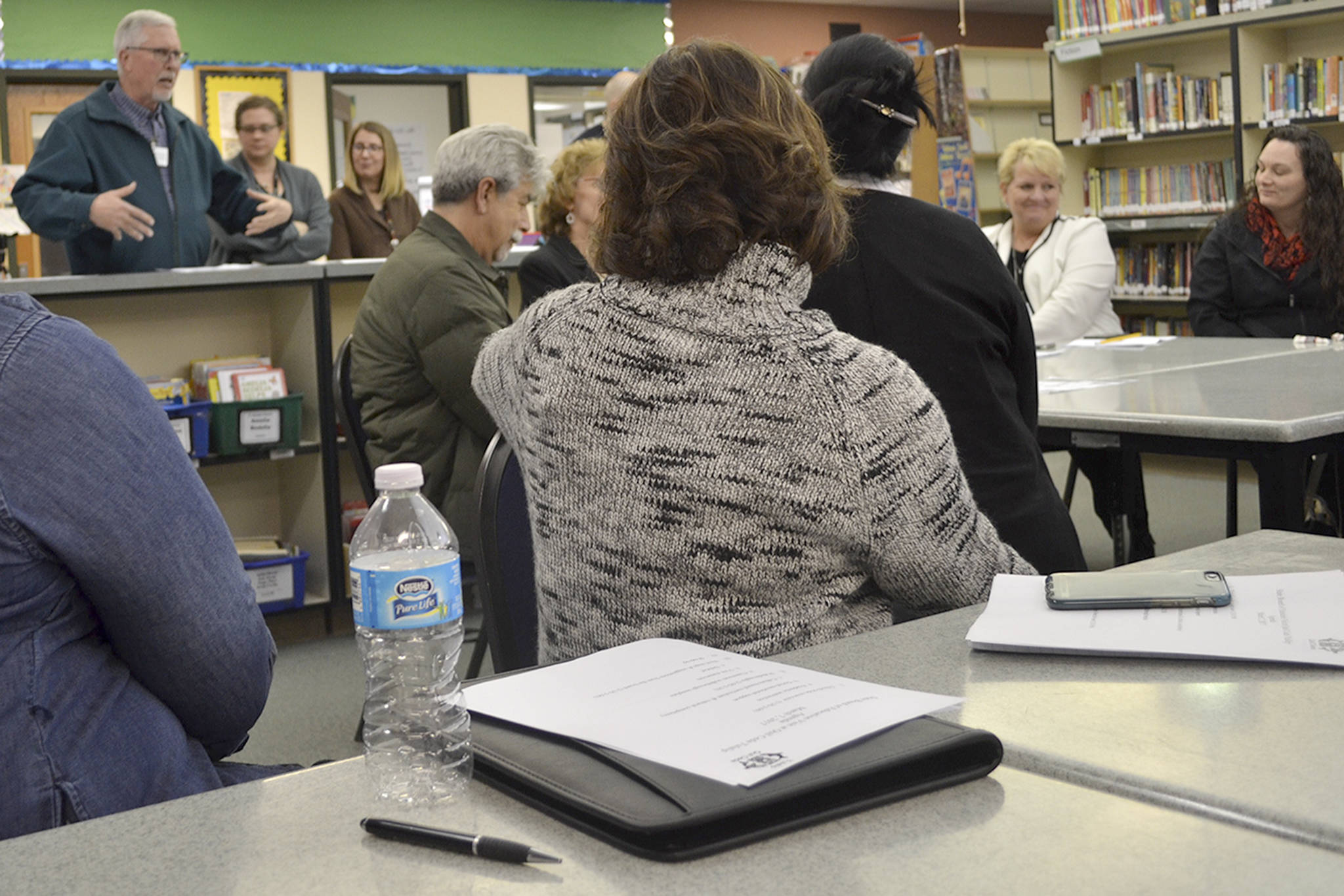MARYSVILLE – The state Board of Education visited Quil Ceda Tulalip Elementary Tuesday and received a lesson in Native American education.
Theresa Sheldon, a member of the Tulalip board, told them there are too many standards.
“How much are we losing?” she asked. “We don’t get to embrace the whole child.”
Later, Ben Rarick, executive director of the state board, said he understands that.
“Data is easy to measure,” he said of testing results. “But at the expense of …”
Sheldon’s comments had to do with her belief that music and art make a difference for students, but because of standards they get less and less of that.
She explained how the school’s daily morning assembly, which includes Native American drumming, singing and dancing, has improved the self-esteem of participants, whose numbers are growing. “They want to learn, participate,” she said. Chelsea Craig, a culture teacher at the school, said that the morning assembly is “not just something cute we do. It’s healing work. They are proud of who they are as Indian people.”
She said non-Indian students love the assembly, too. “They sing and dance right alongside of us,” she said. “It teaches kids to be inclusive.”
A number of speakers talked about how trust has been such a big issue between tribes and U.S. education. “We have done a lot to destroy that trust,” Marysville schools superintendent Becky Berg said.
Some speakers brought up boarding schools about 100 years ago that separated children from their parents and tried to force students to forget their tribal education. “That’s at the root of how we got to this place,” Anthony Craig of the district said.
Sheldon added, “That’s the historical trauma of a community.”
To improve understanding, the district and tribes are working on a Tulalip curriculum that can be used in all schools.
“It’s not a packaged set yet,” Anthony Craig said, adding there are some lessons available from the Hibulb Cultural Center.
Tribal chairman Mel Sheldon said the district and tribe have come a long way in working together.
“At I-5 there was a wall there for years,” he said, adding former superintendent Larry Nyland and Berg have helped to tear it down. “Not many school districts do that.”
Anthony Craig said that having a tribal chairman and board member at that meeting was “historic.”
Marysville School Board president Pete Lundberg called it, “Pioneering what’s going on now.” He said when he attends national conventions he thinks many times that the Tulalips should be speaking instead because they get it.
“The work here is really difficult,” he said. “The Tulalips are all in. We are learning what all in looks like.”
Rarick said that relationship is key. “When you get that it’s gold,” he said.
He added the board was honored to attend the meeting to learn about and try to understand the culture.
Anthony Craig said while he appreciated that, he would like the board to take it even further. He suggested that the states’ tribes should have a seat at the table not only for the Department of Education, but for OSPI, too. “Ideas are not being heard,” he said.
Theresa Sheldon had another bit of advice for the state board.
“We’re tapping back into our indigenous ways of learning. It’s OK to step out of the box when it comes to education,” she said.



